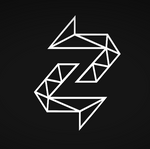Overview
The Zentamesh network is a key focus of Zentachain Labs it offers several benefits, such as increased efficiency, self-healing capabilities, and the ability to repair or restore inactive nodes.
In addition to these benefits, Zentachain also plans to incorporate artificial intelligence (ANN) into the Zentamesh network in order to optimize the flow of information and improve efficiency.
By using an input-output training method on nodes that transfer messages or data within the network and incorporating ANN solutions to determine the status and availability of individual nodes, Zentachain aims to reduce delay, minimize data loss, and improve overall performance. However, while Zentachain is committed to this approach, it also recognizes the importance of staying open to new innovations and developments.
The next version of Zentamesh, which will includes a new reinforcement learning algorithm called Q-learning. This algorithm will be used to optimize routing decisions in the Zentamesh network.
Artificial Neural Network
An artificial neural network (ANN) is a type of computer program that is designed to mimic the way the human brain works. It is made up of a large number of interconnected "neurons," which work together to perform a specific task.
For example, an ANN might be used to recognize patterns in images, classify data into different categories, or make predictions based on input data. ANNs are trained using a learning algorithm and large amounts of data, and they can improve their performance over time as they are exposed to more and more data.
One of the benefits of ANNs is their ability to learn and adapt. They do not need to be explicitly programmed with rules or features, and they can handle complex and changing environments. However, they can also be difficult to interpret and understand, and they may require a lot of computational resources to train.
Q-Learning
Q-learning is a type of reinforcement learning that involves an "agent" learning through trial and error and receiving rewards or penalties based on its actions. By using Q-learning, the Zentamesh network can be trained to optimize routing decisions based on past performance, improving the efficiency and reliability of offline packet transmission.
We believe that this new feature will significantly enhance the performance and capabilities of the Zentamesh network, and we are excited to see how it will be used in the future.
Zentamesh V2
One of the key features of the Zentamesh implementation is the use of machine learning algorithms to optimize routing decisions. One particular algorithm that is useful in this context is a neural network.
Zentamesh network with the neural network will be trained to analyze patterns in the data being transmitted and make routing decisions based on those patterns. The neural network can be trained to identify patterns in the data that indicate the likelihood of congestion or other network issues, and route packets accordingly to avoid those issues. This will potentially improve the efficiency and reliability of the network by avoiding congestion and other issues that can cause delays or errors in packet transmission.
Overall, the integration of neural networks in the Zentamesh implementation can potentially improve the efficiency, reliability, and adaptability of the network, making it a powerful tool for optimizing routing decisions.
Big Bang
The ANN will used to approximate the Q-function in Q-learning. The ANN will trained as the learning algorithm and a dataset of past actions and their corresponding rewards.
The inputs to the ANN are the current state and the possible actions, and the output is the estimated future reward for each action. The ANN is updated based on the difference between the predicted reward and the actual reward received after taking an action. Overall, the ANN with Q-learning will be help an agent make better decisions and improve its performance over time.
More about Zentamesh

Thanks & Best Regards Zentachain Team!















